AgTalk | Ethical, Empowering, Influencing: Genesis' Prema Sagar
It was an idea that took root 20 years ago on November 1, 1992 and what began as a small three-member firm soon grew into a professional, multi-location and multi-faceted start-up with a presence across India. The genesis of an idea to start a public relations firm gave it its name, Genesis Public Relations and their first client, Park Hotel of the Apeejay Surrendra Group set the ball rolling. The fact that Park Hotel continues to be their client is an achievement in itself. Today, Genesis PR has grown into one of India’s most trusted communications firms in the country. Over the course of its journey Genesis PR transformed into Genesis Burson-Marsteller after its partnership with Buson-Marsteller in 2006. The firm continues on its defined journey, a path that was chosen and is still determined by its Principal and Founder, Prema Sagar. Her vision not only defines the path for the firm, but also mirrors the journey of the public relations industry in India.
The vision since 1992 has been ‘to be the most professional public relations firm in India’ – not the largest.
Prior to setting up Genesis PR, Prema Sagar was Editor-Publisher of Genesis-The City Guide, a travel magazine, and co-founder of Genesis Printers. An alumna of the Frank Jefkins Institute, UK, Prema has played a leadership role in the industry as the Founding President of the Public Relations Consultants Association of India (PRCAI) and currently of the Public Affairs Forum of India (PAFI), Council Member for India of the International Public Relations Association (IPRA) and member of the Global Board of Management of the International Communication Consultancies Organisation (ICCO).
Holmes Report awarded Genesis Burson-Marsteller as India Consultancy of the Year 2008. It is great acknowledgements of the valuable work the 250+ people do everyday for 120+ blue chip retainer clients.
She is the first Asian to be inducted into the ‘ICCO Hall of Fame’ in 2005. By achieving this rare honour, Prema Sagar has joined a select group of global personalities including John D. Graham, Chairman and CEO, Fleishman-Hillard, Harold Burson, Founding Chairman, Burson-Marsteller, Daniel Edelman, Founder and Chairman of Edelman. Prema has, among others, participated as a Jury Member at the very first Cannes PR Lions – an experience she cherishes.
Prema’s passion lies in saving lives of lesser-privileged young children at Genesis Foundation supported by deeply committed volunteers as well as being on the Advisory Board of SaveLifeFoundation that is doing incredible work in saving lives post road accidents.
Adgully had a rare opportunity to interact with this woman of substance and spoke with her on a range of topics; present here is a transcript of the conversation.
Adgully (AG): How has Genesis evolved over the years in terms of work style and culture?
Prema Sagar (PS): We have and still focus on culture building by demonstrating behaviour, discipline and delivering value. The leadership demonstrates the work ethos and our approach in the smallest of situations. Our creativity, content, collaboration and campaign planning is backed by outstanding talent, share point technology, processes and systems.
Genesis’ mantra is Ethics, Empowering and Influencing. The company’s Red Book that every colleague receives at the time of joining is the guiding light. During induction we ensure that our work style 'The GBM Way' is well understood and practiced.
In today's environment, there is a greater need to focus on Ethics and that is demonstrated through every interaction. Our response to colleagues and ourselves is - when in doubt ask yourself, “what is the right thing to do” and this has been the cornerstone of our philosophy that has kept us focused.
Empowering is an ongoing journey. To enable people to make decisions in the best interest of our clients and ourselves, we have 23 empowered leaders who make their decisions. The next level which comprises colleagues who are stuck in the middle are in the process of experiencing leadership break through programmes. We want to see 20 more empowered leaders by 2013.
Influencing through various channels of communication is an art and a science. We create preference, we recommend experience and we influence decisions that help choice, purchase and change.
How you build a culture is about how you behave. It is something that happens every minute; how you keep your promise is very important to deliver the value. Discipline is very important. Adapting to the fast-paced ever-changing environment and technologies - is even more important today than ever before…and who knows what the future looks like.
Influencing is what we do every day, empowerment creates leadership and ethics is always about the choices what company makes. The core is how we research, develop the message, build a winning campaign and measure the outcomes.
AG: What have been some of the high points of your journey?
PS: To have an envious portfolio of clients that we have served for innumerable years. A large number have been with us for more than 10 years, many for over 5 years.
To have a formidable team of colleagues who work very hard to deliver our clients campaign. Our leadership constitutes thorough professionals who have been for more than 10 and 15 years.
AG: What do you think are some of the challenges the PR industry faces?
PS: The industry has grown very fast and it has been a great challenge to train talent in a short time. It takes time to master media relations, writing skills (the existing education system in India cannot hone good practice of writing and every client has a different style!), client servicing skills, campaign planning, execution and measurement).
AG: Were there any specific challenges that you faced as a woman in the field also being one of the early adopters of the field?
PS: The only challenge I faced once was that I couldn't get myself to be heard in a meeting of 18 men! It was the most frustrating moment. Everything else has been an exciting journey and still is.
AG: In an age where any publicity is good publicity, what do you think about the ethics of the field?
PS: In every field there are organisations that take short cuts and others don't. The leader who is ethical will demonstrate and enforce alignment. Those who don’t will have to pay the price at some point. Every ethical leader can never sleep well in the fear that one bad apple can destroy the organisation in one minute.
AG: You have seen the Indian PR industry evolve from early days. Where in your opinion do we stand vis-a-vis the industry in the US or Europe?
PS: We, in India, have learnt a great deal from the West. They pioneered it. What we have done in India is adapted it to the local needs, sensitivities and pace of growth. Internationally - Digital, Corporate Responsibility, Advocacy, Healthcare, Financial - are way ahead and we have a long way to go. The media environment in the West has changed drastically. For instance, 92-year-old Harold Burson consumes news online – newspapers like New York Times, Financial Times, and Wall Street Journal etc. He doesn't say, "I like the feel of paper".
AG: Do you think the PR industry is now getting its due place in the corporate scheme of things as a profession? What more needs to be done so that clients take PR more seriously?
PS: Yes. Companies are definitely looking out for more strategic advice, creative ideas particularly in the B2C space and unimaginable expectation on delivery! With multiple issues and crises a day, there is a lot more expectation from clients for senior leadership engagement and advice among the public relations firms. Clients need to be prepared to pay for issues & crises as a project over and above the annual campaign contract so that both have different needs and both need senior level advice, strategy and execution.
It is interesting to see more and more small to medium size companies are looking out for public relations services. The expectation still needs to evolve from basic coverage to a more holistic approach but that too will happen.
What more needs to be done from our industry perspective - we need to change and adapt quickly to the fast changing needs of the clients. From a client perspective -they need to compensate better keeping in mind their growing demands and build success fee into the contract on fair measurable goals.
AG: The general perception is mostly that PR agencies are good on promises but poor on delivery. So how can client's confidence be increased?
PS: Companies, corporate communication teams and public relations firms should stick to an agreed annual campaign with measurable goals so that it can be evaluated annually. Issues and crisis communications should be on project basis. We are often told ‘how can you charge us extra when there is a crisis, you should help us free of cost as our PR advisor’.
AG: A lot of large agencies have chosen to join hands with global players or sell majority stake. Some of the global players have also set up standalone operations in India. So going ahead how do you visualise the industry evolving. Where do standalone Indian agencies stand?
PS: There is space for all in every market around the globe. Some of the very large companies have one global firm, some have a hybrid, which could be regional strengths, and service led expertise. Some companies allow markets to work with the best firm in each of their markets with a company's regional head being the integrator.....
At the end of the day, it is about each company’s reputation in the market - local or global - and that goes back to leadership, talent and skills to meet the needs of today.
Stand-alone agencies deliver great value as much of the work is in niche areas. They also work very closely with the client and work on specific targets – which is what the company’s need is.
Marketing
MINUTES TO READ


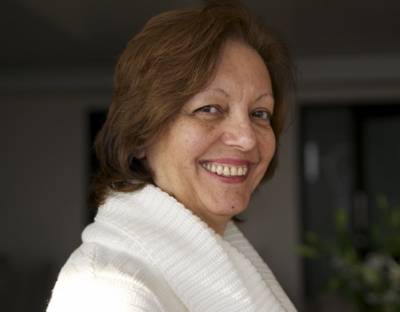



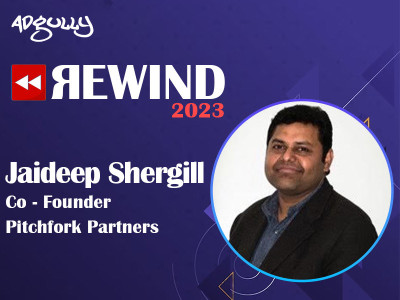

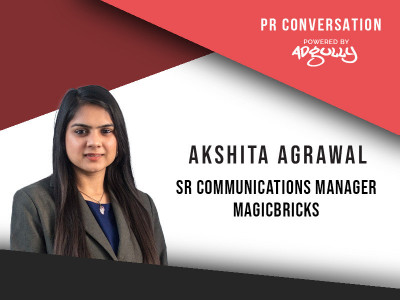
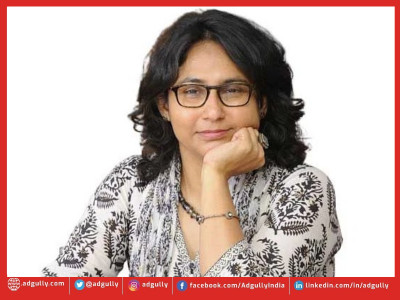

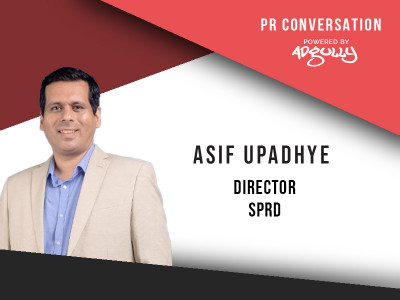
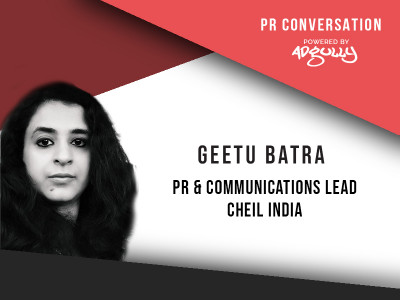
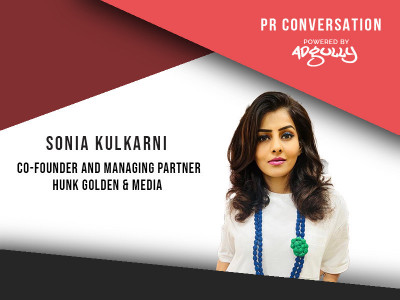
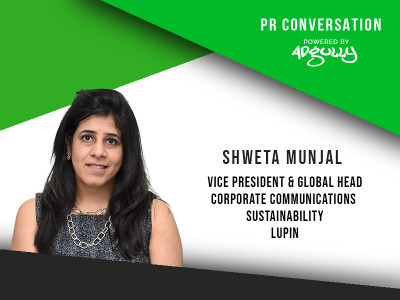

Share
Facebook
YouTube
Tweet
Twitter
LinkedIn